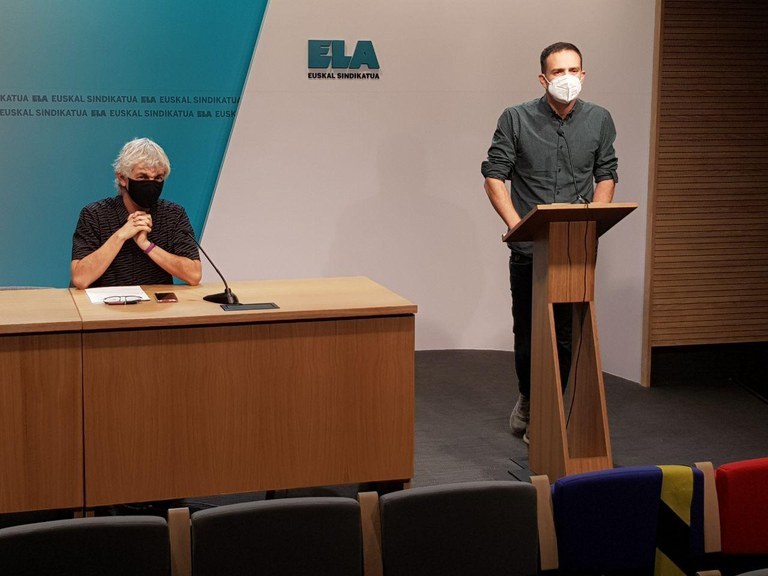ELA demands institutions to reject European funds conditioned by pension cuts or refraining from going back on labour and collective bargaining reforms

In ELA’s opinion, the budgetary stability rules must be urgently eliminated (the suspension of which has only been decreed for 2020 and 2021 and it is already been announced that from 2022 they will be met once again, which would mean very significant budgetary cutbacks to give priority to the payment of the debt), substantially increasing taxes to high incomes, to companies, to fortunes and to capital and guaranteeing the budgetary items necessary to cover the important needs existing on the subject of social protection, public services and employment policies.
At the press conference offered today, they explained that the criteria used to share out the European funds clearly specified that in order to be able to benefit from them, a series of reforms must be applied, amongst which pensions, labour reforms, or those aimed at the so-called “market unity” are indicated.
They also emphasised that the European funds are fundamentally aimed at funding projects already in progress by multinational companies and the institutions will not be able to fund policies for healthcare, education, care, social or employment benefits, the enormous shortages of which have become evident in the current healthcare, social and economic crisis.
The decisions adopted in recent weeks (such as the approval by the European council of the budgetary endowments for the next 7 years) confirm what the trade union has previously denounced. Pedro Sánchez’s government is negotiating with Brussels with regard to the reforms that are going to be carried out and they are doing it clandestinely, without making the documents public on which this negotiation is based. The only point that is known is that the European Union and the governments of the aforementioned Union have conditioned any step in the assignment of the funds to the fact that the contents of any reforms of pensions, labour and the market unity are specified.
Likewise, the Spanish Government has indicated that in January the projects to which it intends to give the European funds will be made public. Previously, (in December), the Basque Government and the Government of Navarra will have made their proposal public, although the Spanish Government will be the entity that will unilaterally adopt the decision about the funds.
